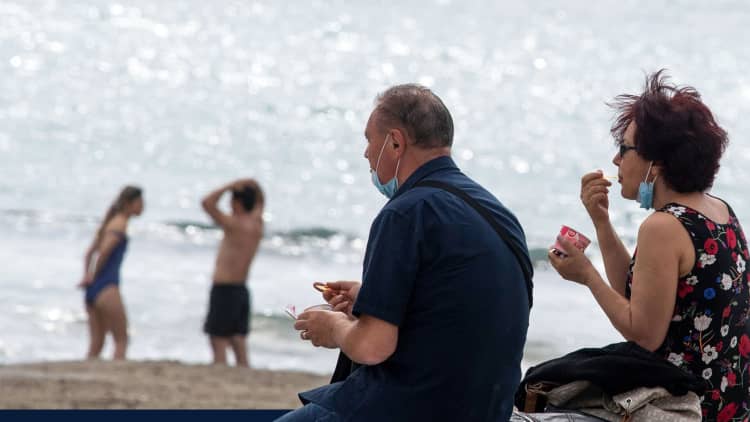
The tourism industry in Europe is at risk of being eclipsed by other global destinations as governments put in place different measures to reopen in time for the summer season, experts have told CNBC.
Tourism represents 10% of the European economy and creates 27 million jobs directly and indirectly across the region. However, the sector has been on pause since March with many countries imposing lockdowns and strict travel restrictions to contain the spread of Covid-19. European governments have announced strategies to reopen the sector for the summer, but there are concerns that their lack of coordination will benefit other destinations.
"What I fear… is the lack of standardization, the lack of harmonization," Eduardo Santander, the head of the European Travel Commission, a group of tourism associations across Europe, told CNBC.
The European Commission, the executive arm of the EU, unveiled last week guidelines on how tourist destinations in the region should reopen. These included ideas such as a booking system for meals and swimming pools. However, decisions are ultimately down to the individual governments across the 27 member nations.
This has meant that the various capitals have announced different measures on how to receive new guests.
"You are planning to go to Italy and the protocols there are much more sophisticated and complicated compared to Greece or to Spain — maybe it will create a competitive advantage, or a competitive disadvantage, if some governments are very relaxed or some governments are very strict," Santander told CNBC, suggesting that how governments act may have an impact on consumer demand.
In a report, out earlier this month, most European destinations said they expect arrivals to be lower by between 30% and 40% in 2020, compared to 2019.
According to the same report, France is expected to be the most-heavily impacted European destination, with nearly 38 million fewer inbound visits in 2020.
Spain and Italy follow suit, with 34 and 31 million fewer inbound arrivals.
"I am a little bit worried, if I see the problem with a global view," Giovanna Manzi, CEO of BWH Hotel Group in Italy, told CNBC last week.
"Unfortunately, we don't have consistency because each country is doing what it wants," she said, adding that "this is of course not helping us."
The European Commission was not immediately available for comment when contacted by CNBC.
Manzi told CNBC that, by contrast, countries such as the United States and China are likely to show a united front on this matter, which could make them more popular than Europe.
The Organization for Economic Cooperation and Development (OECD) said in its Tourism Trends for 2020 report that "France, Spain, United States, China and Italy remain the world's top five tourism destinations, receiving more than a quarter (27%) of worldwide arrivals in 2018."



